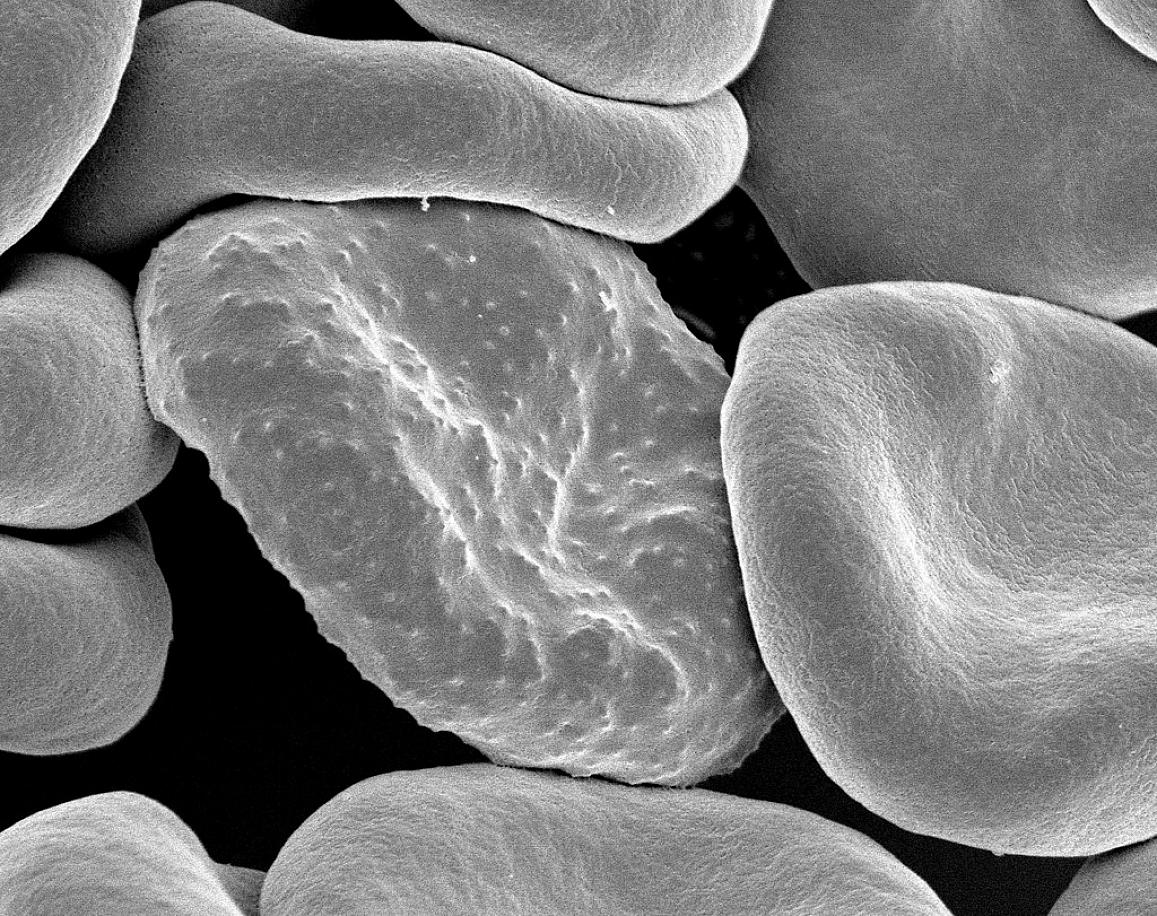IRP study may help explain why iron can worsen malaria infection
Researchers identify protective role of iron export protein and its mutation
Researchers at the National Institutes of Health have a possible explanation for why iron can sometimes worsen malaria infection. By studying mice and samples from malaria patients, the researchers found that extra iron interferes with ferroportin, a protein that prevents a toxic buildup of iron in red blood cells and helps protect these cells against malaria infection. They also found that a mutant form of ferroportin that occurs in African populations appears to protect against malaria. These basic findings, published in Science, may help researchers and healthcare officials develop strategies to prevent and treat malaria infections, which numbered nearly 216 million worldwide in 2016.
“Our study helps solve a long-standing mystery,” said Tracey Rouault, M.D., the study’s senior author and a senior investigator at NIH’s Eunice Kennedy Shriver National Institute of Child Health and Human Development (NICHD). “Iron supplements can sometimes worsen malaria infection and, conversely, iron deficiency can be protective in some cases. Our findings reveal that ferroportin — its function, as well as its regulation by iron levels — helps to explain these observations.”

Electron micrograph of red blood cells infected with Plasmodium falciparum, the parasite that causes malaria in humans. During its development, the parasite forms protrusions called 'knobs' on the surface of its host red blood cell which enable it to avoid destruction and cause inflammation.
This page was last updated on Friday, January 21, 2022